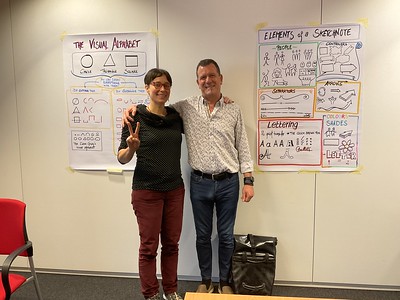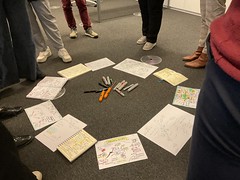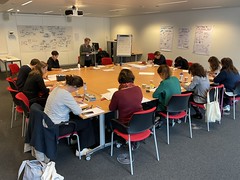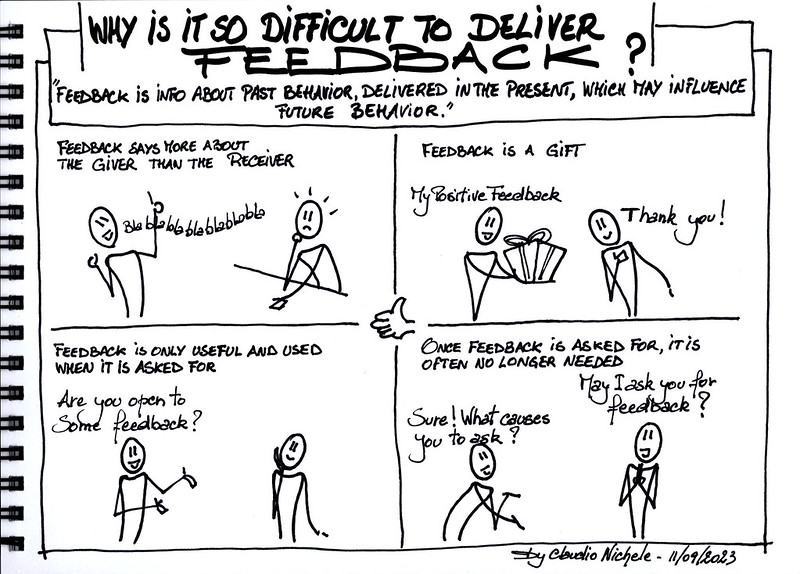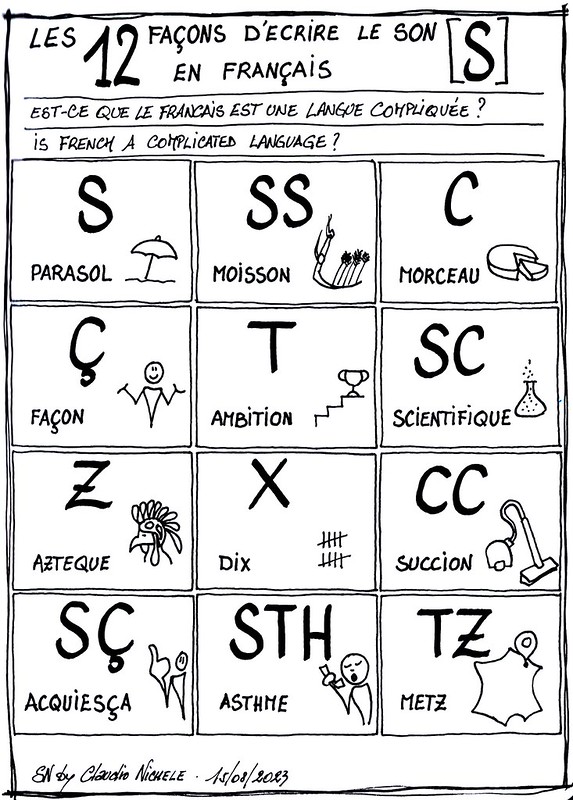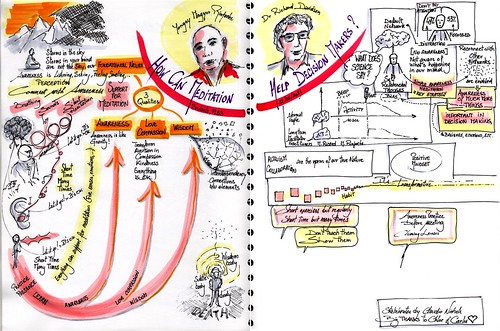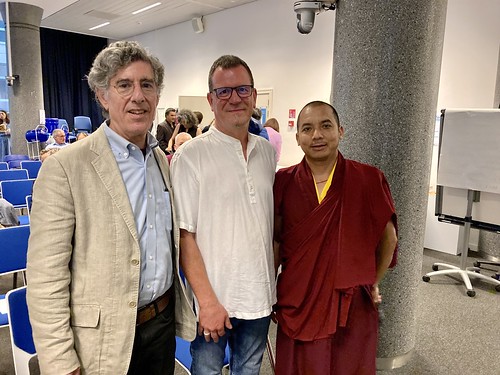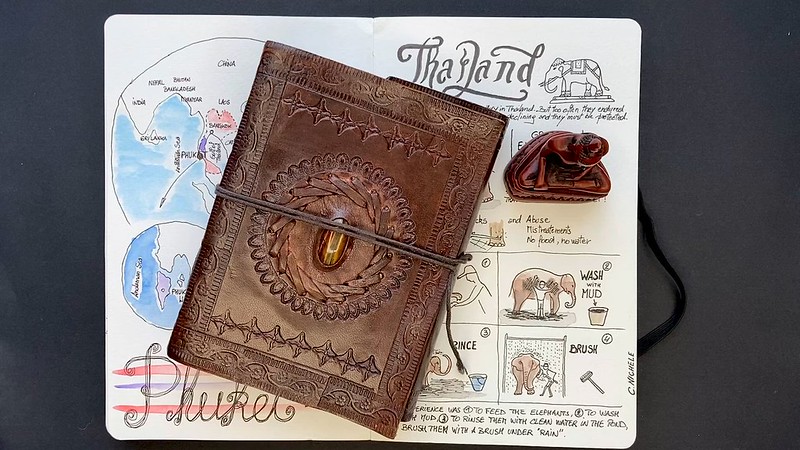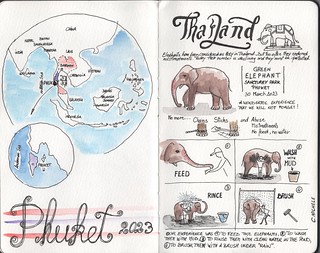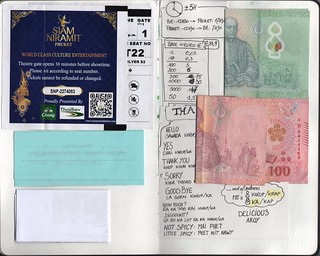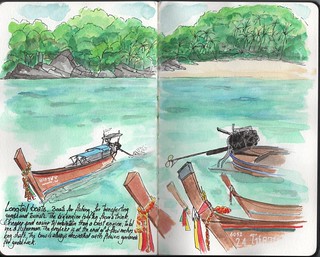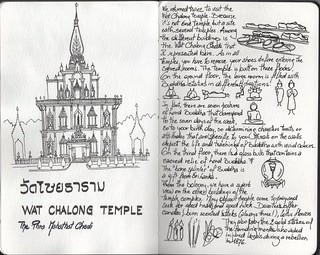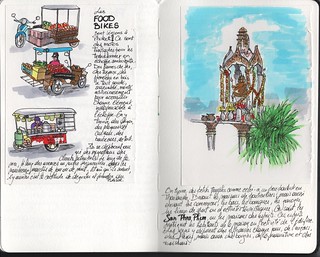As member of the JRC and as visual thinker, I was invited to capture visually the main insights of the JRC senior management seminar. During two days, I listened to a few hundred managers taking stock after one year of the launch of an innovative way of working in transversal modes in our organisation, the so-called JRC portfolios. The program was a fair balance between keynotes, informative presentations, exchanges, and conversations in world café mode. My challenge was to create the graphic recording of all this in order to provide a visual but also emotional memory that would be useful to the participants and those who were not present.

On the substance
Overall, the results after one year are positive. There is a deeper understanding among the managers of the benefits of collaborating and working together on cross-cutting themes to “do even better science to support EU policies”. There are of course issues to resolve, while navigating a complex organisation and world, but by working together, everyone agreed that we would be able to overcome it all.
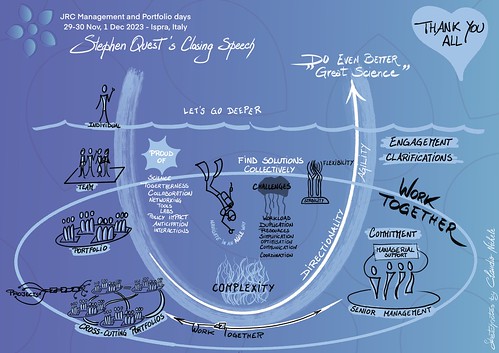
How I worked
Aware that I would not have been able to capture the essence of extremely technical, dense and tense conversations over two days, I put together a small team of volunteers to help me. They were instructed to write down points and insights that were important to them on post-its (when they wanted and if they could) and bring them to me. This is how dozens of post-its arrived at me at the end of each intervention. Thanks to them I was able to refine my live visual notes by confirming or correcting my own notes, or by covering what I had missed.
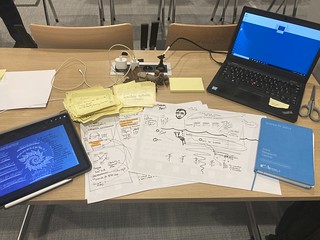

Personal take-aways
The intensity of the program spread over three days, and the exhausting trips to and from the hotel which was very far away, should not have impacted my concentration and my ability to listen. So I relied on a few small moments of meditation during the days, whether it’s a walk outside the conference center or stacking stones in balance inside. This is really what allowed me to keep my concentration and manage my mental fatigue.

I was moved when some of the colleagues who helped me with the harvesting said at the end that they had listened to the speeches with much deeper attention than usual. They experienced the basics of harvesting, this technique in the art of hosting which first consists of listening at different levels. Without them I would not have been able to create such rich and deep visual notes. Harvesting important events can only be done correctly with and as a team.
I want to express them my gratitude and to the other colleagues with whom I had the privilege of working closely, for their support, their help, their kindness, for the coffees brought, their smiles, for their comforting looks, for who they are. Beautiful people.



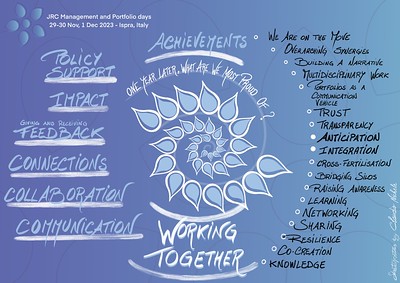
This blog post is available on Linkedin as well











